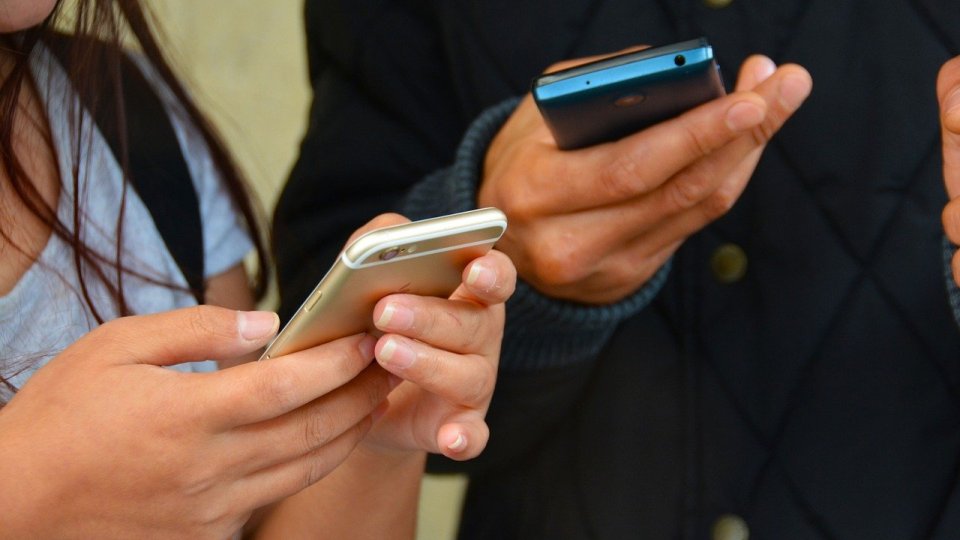Sexting happens. It probably happened within the 24 hours of people owning the first mobile phones, but it's certainly become a common occurrence in the era of smartphones and selfies.
The definition we’re using in this article is one that was shared by online safety expert Gareth Cort in episode two of our online safety podcast:
“Taking a nude or sexually explicit image of yourself and sending it to another person.”
It is important to note that this isn’t just behaviour that adults engage in, it’s increasingly common in young people too. With that dynamic comes all manner of legal, ethical, and personal challenges, and we want to look more closely at what you can do as a parent or teacher to manage sexting incidents with young people.
Legal issues with sexting and young people
Not all sexts are created equal.
For adults, privately making and sending an intimate image is completely legal. Sharing that image without the subject’s consent is a crime and, if this has happened to you, you can contact the Revenge Porn Helpline for free, expert advice.
For under-18s, however, it’s a different situation. If you take a nude image of yourself, you have created an indecent image of a child. If you share this image, you have distributed an indecent image of a child. If you keep it on your phone, you are in possession of an indecent image of a child. Yes, it’s a bit of a peculiar law and, yes, it doesn’t exactly make sense, but it exists with good reason.
All of those crimes come under the Protection of Children Act of 1978.
A law that was passed 41 years ago, unsurprisingly, didn’t take into consideration smartphones, selfies, or messaging apps. With the changing landscape of digital technology, the law has yet to catch up. Thankfully, police forces across the UK have always taken a common sense approach to this issue, focusing on advice and guidance and avoiding prosecutions.
Moving away from victim blaming
Sharing intimate content is nothing new. Love letters (both romantic and raunchy) date back to the advent of literacy and people were sending their best black and white shots to and from the trenches a hundred years ago. The only thing that’s changed now is the scale and speed at which we can lose control of them.
Sexting is a modern expression of what is an ultimately intrinsic part of the human experience – sexual exploration and curiosity.
The difference that has emerged over the last 20 years or so has been that, now, when these situations go awry, it can occur in a very public forum. Images can be shared widely and quickly and disagreements can follow people across the internet.
The last thing someone needs to be made to feel when sexting has gone wrong is maligned, belittled, or judged.
Telling somebody off for something they’ve already done isn’t going to change what’s happened. Reacting in a calm and supportive way will do a lot to relieve the trauma and betrayal that come with these kinds of incidents.
- Be calm and supportive
- Avoid judging, castigating, or moralising
- Focus on solutions and moving on from the incident
Talking doesn’t always come easy
It’s one thing to say:
“You can talk to me about anything.”
It’s another thing for someone to believe it.
Can you imagine sitting down with your parents or teacher to tell them that a naked picture of you had been shared online?
The thought sends shivers down my spine – as it likely does for your children and students!
There isn’t a silver bullet for this. All you can do is react reasonably, compassionately, and with their best interests in mind in other situations to prove that that’s the way you will always react.
Resources for handling sexting incidents
You aren’t alone if you feel worried about handling a sexting incident with your child or student.
Thankfully, there are plenty of resources out there to help you do just that.
We recommend taking a look at:
- The UK Council for Internet Safety’s guidance on sexting in schools and colleges
- SWGfL’s very own So You Got Naked Online resource
- Childnet’s Project deSHAME
- The Belgian Safer Internet Centre’s sexting.be – moving blame away from the person involved
- IWF’s research into child sexual abuse imagery from live-streamed content
- England’s new relationships and sex education curriculum will be mandatory from September 2020 and the relationships, sexual health, and parenthood curriculum in Scotland has recently been updated






